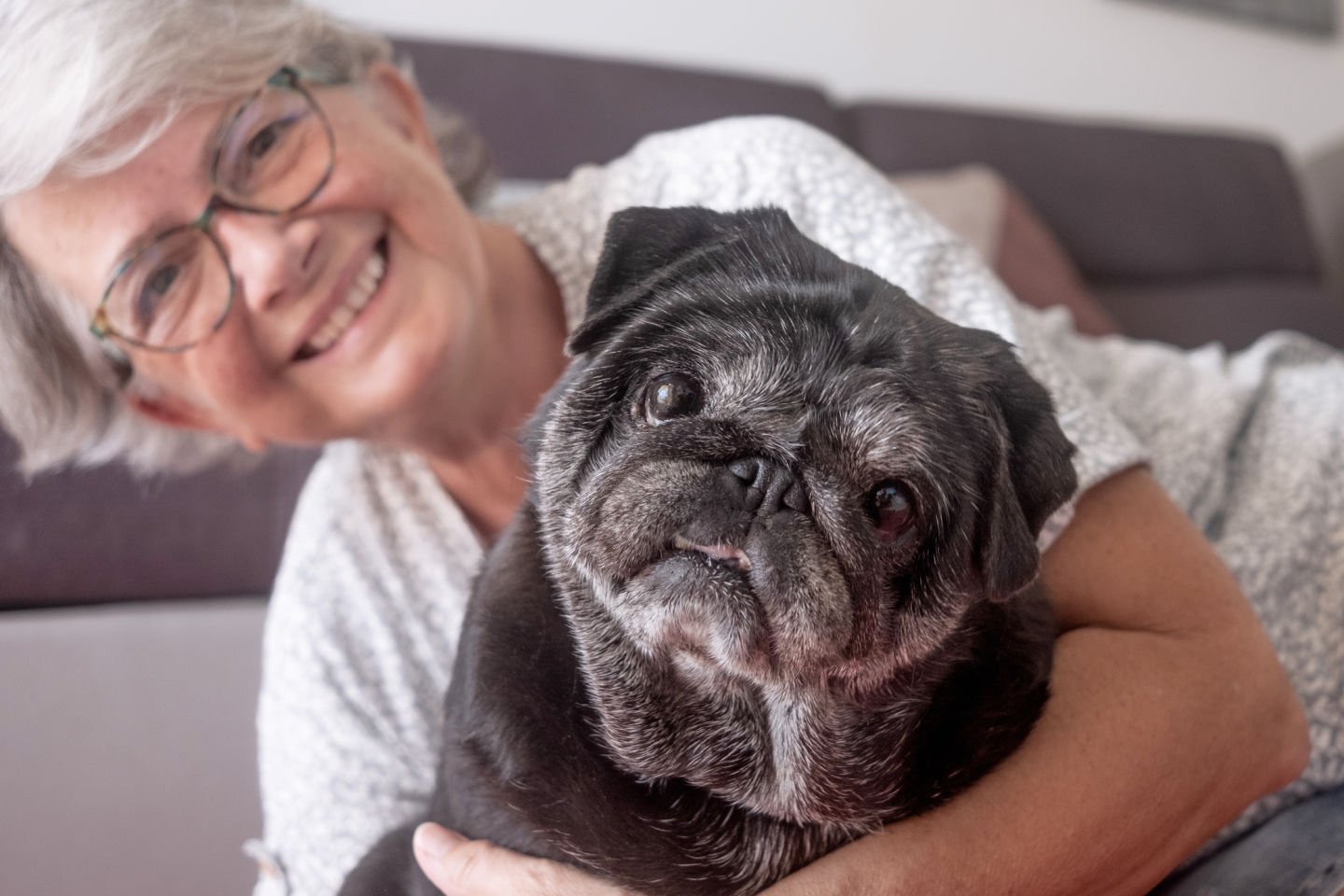How to keep your senior dog healthy and happy
Top tips for caring for pooches through their twilight years.

Key Points
Boost nutrition
Add supplements
Learn about doggy dementia
Keep exercising the pooch (and you).
They say you cannot teach an old dog new tricks. Well, that is not true. It may just take a bit longer and require more patience for owners and the pooch.
Sure, older dogs can have less energy and, like us, begin losing mobility and the sense of smell and sight, but that often means they need us more, not less.
Experts say even older dogs enjoy play and activity and need mental stimulation. Just like us.
It is an important way for dogs and owners can stay connected.
Olivia De Santos is an animal lover, professional writer for Gentle Dog Trainers Australia and canine care video content creator. She loves spending time with her senior dogs, Blue and Pip, and writing pieces to help people become better dog owners.
She says having a senior dog at home is one of the greatest joys—whether you have just adopted a senior dog or raised them from puppyhood.
Here are some general tips to keep you and your pooch going through their twilight years.
Good quality dog food is important, especially in later life. Dogs can develop food sensitivities as they grow older, and their diet should be changed accordingly.
Several manufacturers produce foods with extra vitamins and minerals beneficial to older dogs. They are available at pet stores, vets and larger supermarkets, but they are premium products that cost more than regular pet food.
Older dogs can benefit from natural supplements, such as:
Green-lipped mussel powder to ease arthritis
Vitamins C and E for nurturing the brain
Fish oil with omega-3 to help with joint inflammation
MCT oils for memory function.
Never feed human supplements to your dog. Always seek out dog-safe formulas. For example, xylitol is found in some supplements for humans, but it is toxic to dogs.
Doggy dementia can be a challenge for you and your pet.
Here are some of the early signs your dog could be developing Canine Cognitive Dysfunction Syndrome (CCDS):
They pace at night and howl
They show signs of anxiety during the day and night at sudden unorthodox times
They appear forgetful or confused
They lick themselves, walls, or objects repeatedly and mindlessly
They have a decreased appetite
They start peeing or pooping in the house
They appear irritable or exhibit mood swings.
CCDS is manageable if you take the proper precautions.
Regular trips to the vet can help catch potential ailments before they take hold.
For example, if you catch tumours early you can prevent early death due to cancer, and having your dog’s eyes checked can pre-empt blindness due to cataracts.
Ideally, book your dog for a check-up every three to six months.
It’s natural to relax the exercise routine of an older dog, but it’s important that they get some exercise at least a few times per week.
Old dogs can have good days and bad days, so don’t force them to do more than they physically can.
If they can take a short walk around the block, encourage them to do so. If they can only walk two minutes to the end of the street, it is still work making that trip.
It is important your dog has outings and exercise to keep them happy and healthy.
De Santos concludes, your dog may be old, but they are still the same pup they used to be. They are still inquisitive, excitable, joyful, and fun.
The key to having a happy and healthy senior dog is to adapt their care but still help them enjoy life. Play with them. Feed them well. Take them on fun walks. Cover those bases, and you will have a thriving old dog!
For further reading: Dogs Australia








